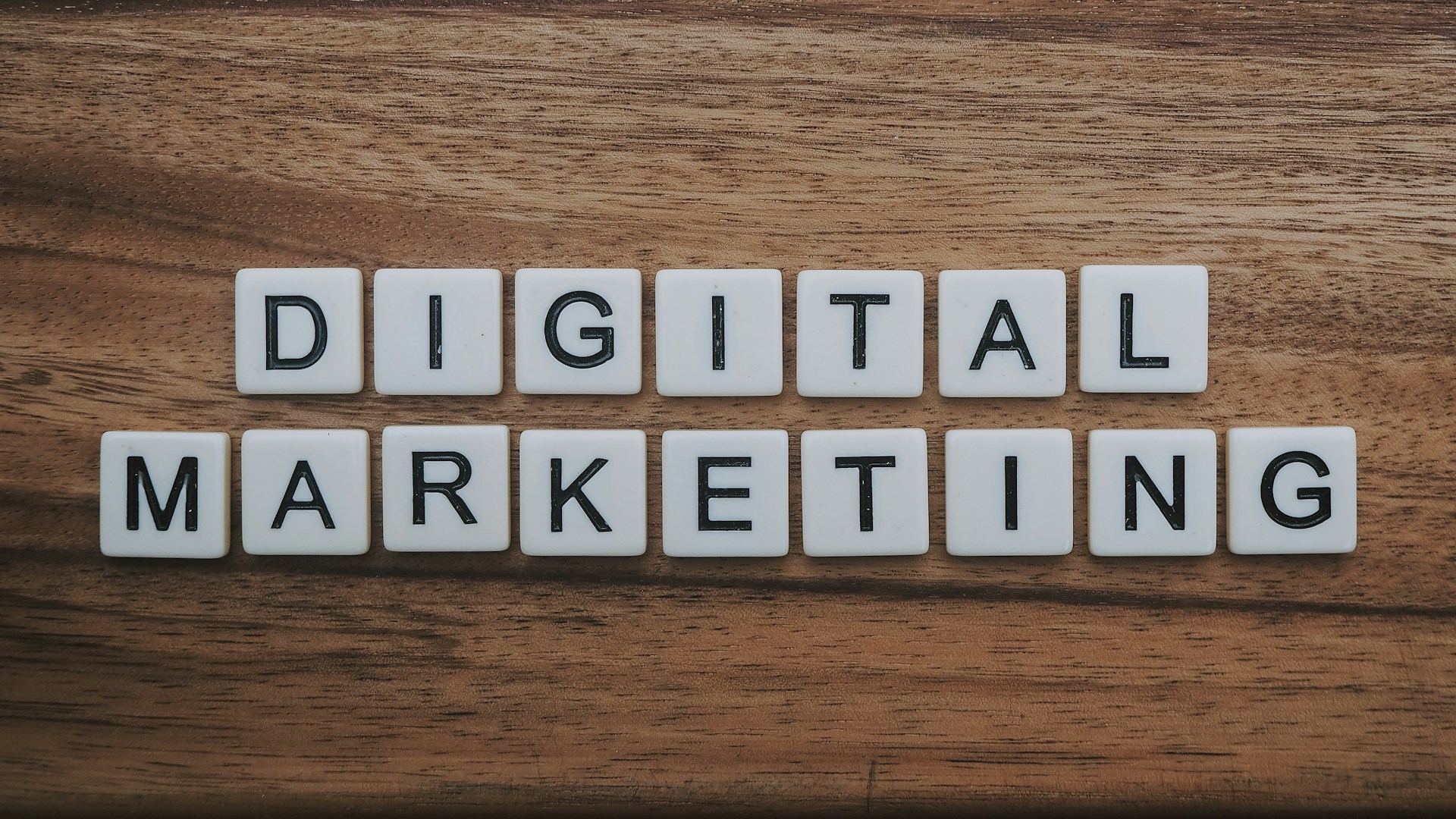What Is Digital Marketing? A Complete Guide
Learn the meaning of Digital Marketing and the features of digital marketing in detail. A complete guide
Arjun R Sharma
6/22/20254 min read

Write your text here...In today’s hyperconnected world, digital marketing is no longer just a buzzword—it’s the backbone of modern business growth. Whether you’re a small business owner, an entrepreneur, or a marketing professional, understanding digital marketing is essential to survive and thrive in today’s competitive landscape.
But what exactly is digital marketing? How does it work? And how can you use it effectively to grow your business? This comprehensive guide will break it down for you.
What Is Digital Marketing?
Digital marketing refers to the use of digital channels, platforms, and technologies to promote products, services, or brands to potential customers online. These channels include websites, search engines, social media, email, mobile apps, and digital advertising.
It’s essentially the modern version of traditional marketing—only it’s faster, more data-driven, and more interactive.
The Core Components of Digital Marketing
Let’s explore the key pillars of digital marketing:
1. Search Engine Optimization (SEO)
SEO is the practice of optimizing your website so it ranks higher on search engines like Google. It includes:
Keyword research
Content optimization
Technical SEO
Backlink building
A well-executed SEO strategy drives organic traffic to your site—people who are actively searching for what you offer.
2. Pay-Per-Click Advertising (PPC)
PPC involves running paid ads on search engines (like Google Ads) or social platforms (like Facebook or LinkedIn Ads). You pay only when someone clicks on your ad.
This is a powerful way to gain immediate visibility, especially for new websites or product launches.
3. Social Media Marketing
Social media platforms like Facebook, Instagram, Twitter (X), LinkedIn, and TikTok are essential for engaging your audience, building brand awareness, and driving traffic or leads.
It includes both organic posting and paid advertising.
4. Content Marketing
Content marketing focuses on creating and distributing valuable content (blogs, videos, infographics, podcasts, etc.) to attract, educate, and convert your audience.
It’s an inbound strategy—designed to pull people in rather than push messages out.
5. Email Marketing
Despite being one of the oldest digital strategies, email marketing remains one of the most effective. It’s used to nurture leads, engage customers, and generate repeat sales through newsletters, promotions, and automation.
6. Affiliate & Influencer Marketing
Affiliate marketing allows others to promote your products and earn a commission. Influencer marketing, on the other hand, taps into online personalities with engaged audiences to promote your brand.
Both are powerful tools for trust-building and reach.
7. Mobile Marketing
With smartphone usage dominating digital time, mobile marketing targets users via SMS, mobile apps, or optimized websites. Push notifications and location-based marketing also fall under this umbrella.
8. Analytics and Data Tracking
Digital marketing thrives on data. Platforms like Google Analytics, Facebook Pixel, and heatmaps help you measure your campaigns and understand user behavior—allowing you to tweak and improve.
Why Is Digital Marketing Important?
Here are several reasons digital marketing is crucial for any business today:
🌍 Wider Reach: Connect with global audiences from your laptop.
💰 Cost-Effective: Cheaper than traditional media like print or TV.
🎯 Targeted: Reach specific audiences by demographics, behavior, or interests.
📈 Measurable: Track every click, visit, and conversion.
⏱ Real-Time: Make changes instantly based on performance.
🤝 Engagement: Two-way communication with your audience.
Whether you’re trying to generate leads, sell products, or build a brand—digital marketing can help you do it faster and smarter.
How Digital Marketing Works: A Simple Example
Imagine you're launching a new skincare brand:
You create an SEO-optimized website and blog.
Run Instagram and Facebook ads to drive traffic.
Collaborate with influencers to review your products.
Offer a free skin consultation in exchange for email signups.
Send automated emails with tips, offers, and product launches.
Track everything using analytics to optimize results.
Each step plays a role in the customer journey—attracting, engaging, converting, and retaining users.
Who Should Use Digital Marketing?
Digital marketing is for everyone—especially:
Small businesses looking to grow affordably
Startups aiming to disrupt established markets
Large enterprises scaling brand awareness
Freelancers and consultants building personal brands
Ecommerce stores selling directly to consumers
Getting Started with Digital Marketing
Here’s a quick beginner roadmap:
Define your target audience and goals.
Build a website and optimize it for SEO.
Create content that solves your audience’s problems.
Choose 1–2 marketing channels (e.g., Google Ads, Instagram).
Set a budget and start small.
Track results and iterate based on performance.
You don’t need to do everything at once. Start simple and scale as you learn what works.
Common Digital Marketing Tools
Here are some tools that help you manage and grow your marketing efforts:
Google Analytics (data/traffic analysis)
SEMrush or Ahrefs (SEO tools)
Meta Business Suite (for Facebook/Instagram Ads)
Mailchimp or ConvertKit (email marketing)
Canva (designing creatives)
HubSpot (CRM & marketing automation)
Digital marketing isn’t just a trend—it’s an essential part of modern business. Whether you’re launching a startup, growing your brand, or selling online, understanding how to attract, engage, and convert customers digitally is your key to success.
The best part? You don’t need a massive budget to start. You just need curiosity, consistency, and a willingness to adapt.
FAQs: Frequently Asked Questions
Q1. Is digital marketing only for online businesses?
No. While online businesses benefit the most, even brick-and-mortar businesses use digital marketing to reach local customers, manage reviews, promote events, and more.
Q2. How long does it take to see results?
It depends on the channel:
SEO: 3–6 months
PPC Ads: Immediate
Email/Social: Weeks to months
Consistency and quality are key.
Q3. Is digital marketing hard to learn?
It’s not hard, but it requires ongoing learning. The digital landscape evolves fast. Anyone can start with the basics and grow with practice.
Q4. What’s better: SEO or paid ads?
SEO is great for long-term, cost-effective traffic. Ads are best for quick visibility. Ideally, use both in tandem for maximum results.
Q5. How much should I spend on digital marketing?
It depends on your goals, industry, and revenue. A common benchmark is 5–15% of your total revenue. Start small, measure ROI, and scale gradually.
Q6. Can I do digital marketing myself or should I hire an agency?
You can absolutely start on your own, especially with free tools and online resources. As your business grows, hiring an agency or freelancer can save time and deliver better results.
Q7. What is the future of digital marketing?
Expect more AI-powered tools, automation, voice search, personalized content, and data privacy regulations. Staying updated is crucial to staying competitive.
